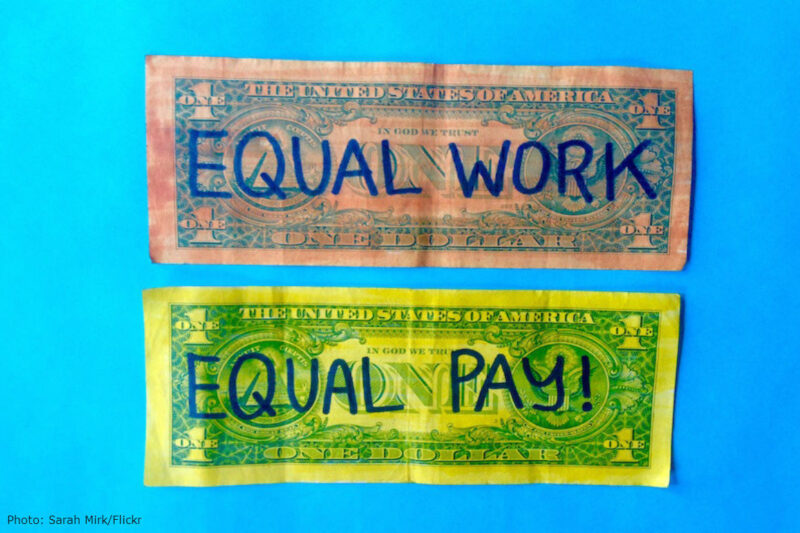
Today is Equal Pay Day. The day we hate to celebrate. The day in 2016 when women, who only earn , finally catch up to what men earned in 2015. That means women have to to earn what their male counterparts earned in one year. And for women of color, that day doesn’t arrive until even later. For Black women equal pay day is , for Latinas .
So what can we do to close the gender wage gap and ensure that all women earn equal pay to all men in the same time frame?
In 1997, Congress introduced the , which would close the loopholes in the and protect employees who ask about or discuss their salary with their colleagues. We know this matters because , who worked for Goodyear Tire & Rubber Company, didn’t learn she was being paid $15,000 less than the men doing the same job as she was until a co-worker slipped her a note informing her of men’s salaries. The PFA got a majority of Senate votes in 2014 but fell short of the 60 votes needed to end debate and vote on the bill. Since then, there has been little progress in Congress on the PFA.
But we have not rested on our laurels. The ACLU and other equal pay allies designed an executive branch strategy through which President Obama, and various agencies tasked with ensuring equal pay for equal work, would engage in regulatory reforms that could achieve some of the goals of the PFA. And here there has been progress. In September 2015, the Department of Labor’s Office of Federal Contract Compliance issued the that implements on pay transparency in the federal contractor workforce. This final rule makes it possible for workers and job applicants to share information about pay and compensation without fear of discrimination.
Today is Equal Pay Day. The day we hate to celebrate.
More outstanding news followed in when President Obama announced, after much prodding from the ACLU and coalition partners, that the Equal Employment Opportunity Commission and the Department of Labor would develop a proposal to annually collect pay data by gender, race, and ethnicity from all businesses with 100 or more employees. A draft proposal, circulated by the EEOC in February, would enable the agency to conduct systemic investigations into potential discrimination and will greatly encourage employers to examine their own compensation systems and root out discriminatory practices.
The ACLU and other allies have also been advocating with state legislators to advance equal pay. And on this front as well, we have been scoring success upon success. In the past year, . As of April, 10 state legislative sessions have ended for the year, but advocates are already hard at work laying the groundwork for bills to push in the 2017 sessions. The ACLU is a steering committee member of the Equal Pay Today! campaign, which seeks to link state advocacy on equal pay to efforts taking place at the federal level to bring about national change.
Now is the time. Advocates are geared up and excited about women’s equal rights. We need to build on this momentum and energize the electorate to make their voices heard. Equal pay for equal work is an achievable goal, and we can make it happen.

